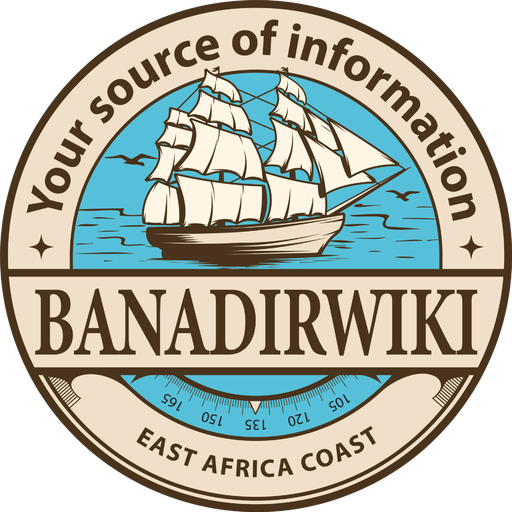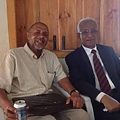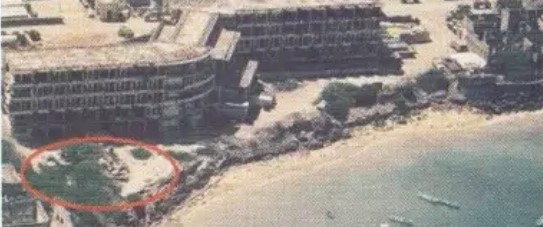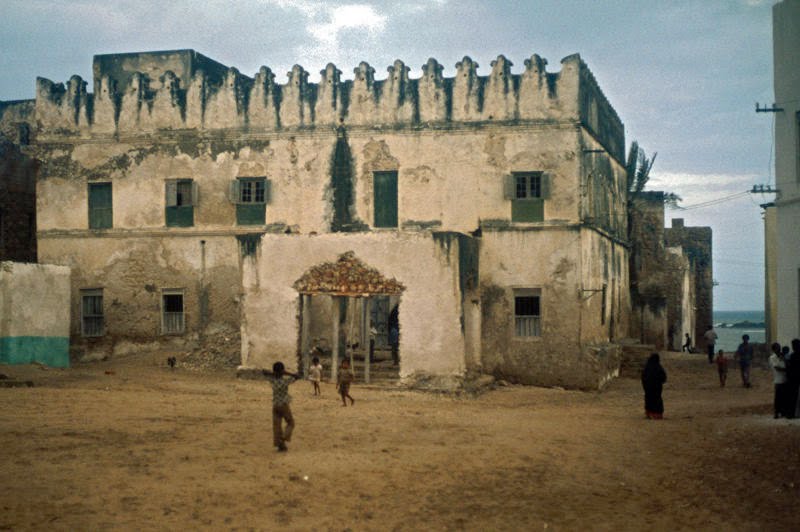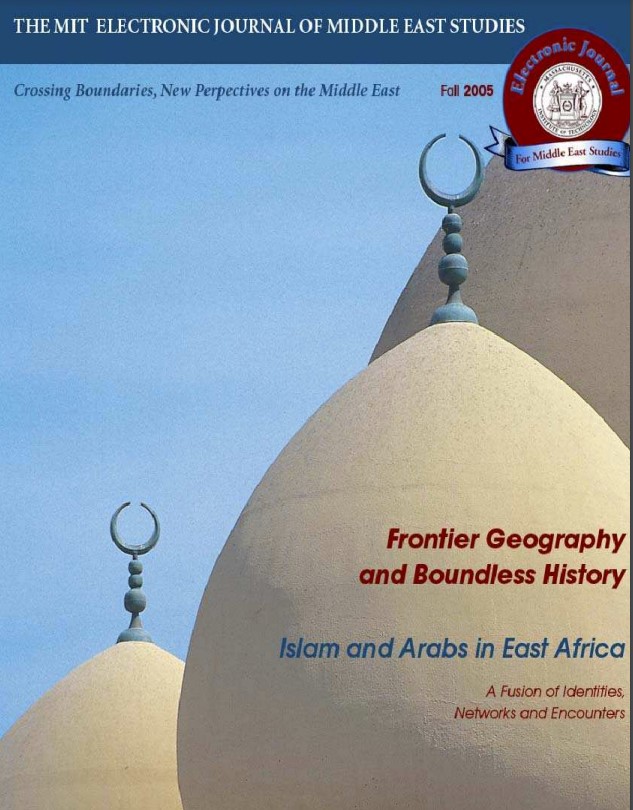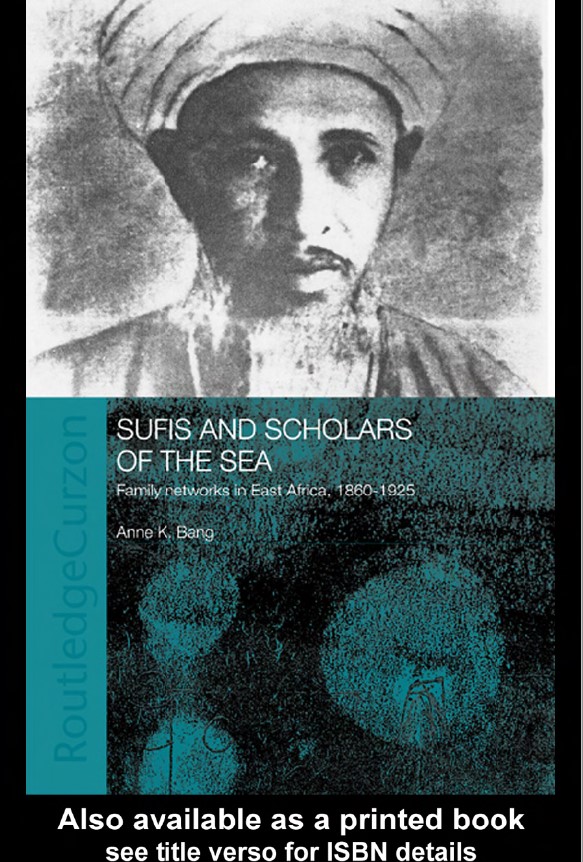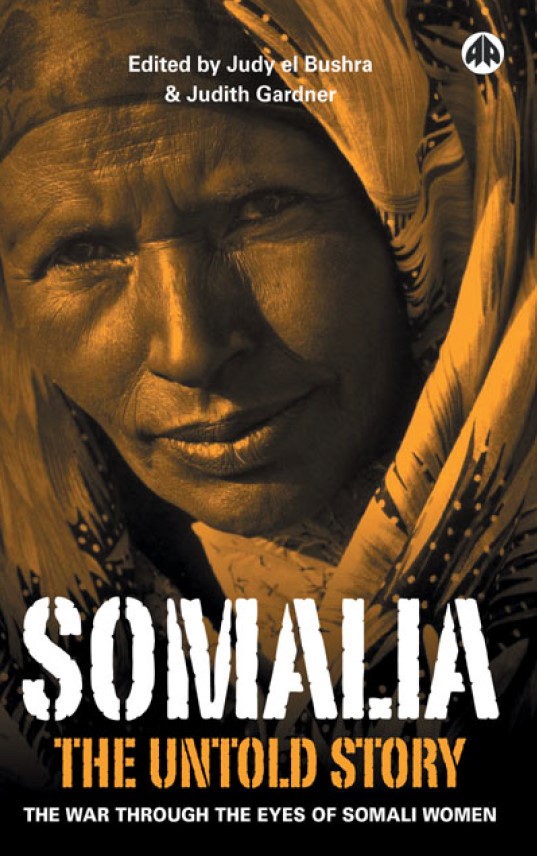Barawa, with its culture, traditional clothing, dishes and language, have always stood out in it’s distinction with her respective neighbours in the Banadir Coast, although customs and traditions were always shared and the apparent relations was always present in the coast between the cities, some customs were limited or only associated with the Barawa people, similar to other towns and regions. This article will explore three games and amusements activities played in Barawa, mostly played by children, teenagers, or even the common people on an occasional day.
Nkoonko

A game played by the youth of the Barawa, sort of similar to the American Hockey, it involved a 1-2m in length piece of stick and a small ball same size as a golf ball, known as ‘Ipira ya Khanziri’. Now although Khanziri means pig in the Arabic language, the actual material that is used is India rubber, a form of natural rubber that comes from the sap of certain trees that are found in Barawa.
The game was played from the early 1800s until the late 1970s when the migration of Somalis began to increase and the demographics changed, it may still be played today but not as popular as before. Sheikh Nurein al Sabir as a child was known to be a good player in this game as witnessed in some reports. The game here involves two teams playing against each other, the aim of the game is to get the ball through the line of the opposing team, similar to football and hockey. Nkoonko is usually played in the Beach in Barawa, commonly on occasional days such as a public holiday or Eid. The teams are usually based on the areas they represent in Barawa, usually the northern part of Barawa versus the southern (Al-Bamba and Biruni vs Bagdadi and Mpayi).
Customary, the game is played at a particular location on the beach, where the kick off begins at the front of the District Commissioners residence, which faces the beach. The southern team will aim to get their ball past the docks called ‘Bontaani’, towards the old abandoned slaughterhouse called ‘Mahalah Hutiindoowa Ngoombe’. Meanwhile the Northern side would try to drive the ball past the Sheikh Nurein Mosque.
The winning team would parade the city as a celebration whilst intimidating their opponent, chants such as , ‘Wa ile kahimaa hima Wa tozelo ndiwo prima!’ – meaning, ‘They came swiftly with high hopes, only that they lost!’
Hayaa Tamo
Hayaa Tamo is played by the younger generation, it’s played throughout the year but mostly during the Kaskaazi (Northern Monsoon) which is between November and January. It is often played in singles, pairs or groups, but no teams are involved with this one, the concept is hitting a piece of wood onto a target thats hanged on the wall using a bat. The target is usually a tin plate or anything that causes a large impact when hit.
The player will stand a distance and will aim to hit the target using the piece of wood (about 20cm in length and 1.5-2cm in diameter), with a stick or a bat. The opponent who stands nearby will attempt by hitting the wood on the rebound before it reaches the ground or throwing it back to hit the target.
When a player succeeds in hitting the target, the other player will be dismissed, and vice versa, the winner takes over in a winner stays on style of play. Each batsman is given a total of 30 hits before he can move on for another player to take over. The player who beats all his opponents is regarded as the winner.

Elders and passers by were never a fan of this type of game due to its hazardous nature, pieces of wood flying around always had a possibility of hitting someone. This never stopped the mischievous Barawa children to do something they enjoy, walking through a typical Barawa neighbourhood and you’re sure to find a group of kids playing this game on some of the many alleyways the city had, whether they played it after school or even after madrasa in the evening, its a competitive game the children enjoyed.
Hiyosa
This is another physical game played in Barawa, it involves two set of teams divided by a line in the middle, the idea is to get the whole team crossing the line to the opposing teams side. It contains wrestling and grappling, your opponent will try to stop you from crossing the line and at the same time will attempt to cross the line and reach your side. The players will shout “Girena” meaning surrender if they forfeit, this will result in losing the match, the opposite word would be “Ma Ugiir” meaning you still want to continue, the team would be declared as winners if they manage to have their whole team crossing the line to the opponents side.
Maayi Ka Mpeembe (A Horn with Water)
With this game, it’s played annually in Barawa between the fishermen and the urban people. It takes place on the morning of the new year, not the Gregorian calendar or Hijri, but the traditional calendar where the beginning of the flow of the rivers Shabelle and Jubba. This is the beginning of a new season, usually on July, it is a ceremonial occasion for the dwellers, not tied to any religious practice but more of a traditional activity. On the morning of the new year, young men will be paraded to the beach by locals as they carry oxen horns or any hollow cattle horn prepared for this game. It takes place inside the water where the horns are filled with water and the young men would then use the horns to splash or hit their opponent until the last man remains, who is declared the winner. With this game it is rather rough and aggressive compared to Nkoonko, the two teams from both ends of the town who enter the sea and hit or splash each other will continue to do so to boast their strength, and this often resulted in injuries.
Poetry and Chants are always sang by spectators as they cheer their teams on, one that is sang famously prior to the tournament beginning goes as follow:
Piicha lawa tawarha khulise deniyo
Oh you phoneys, let’s go to the beach and settle your debt,
Iyi nii nguvu sharia siwo,
It is not according to the law, but based on strength,
Maanya ma batoo ki sogootiyo,
Can’t we go into the sea and see each other off?
Other games played in Barawa including the Banadir Region
- Garaangar (Hamar)
- Shaashaarow (Hamar)
- Kuukun (Hamar)
- Kore (Barawa and Hamar)
- Ibeebe (Barawa)
- Kadime Kadime (Barawa)
- Hiroo (Barawa)
- Gaari Ya Lkaambara (Barawa)
- Chibohori (Barawa)
- Canka or Primo (Hamar, Barawa, Marka)
- Kaanjuri (Barawa)
Brent Henderson who spent a part of his life dedicated to researching about ethnic minorities, had the privilege to interview a man from Barawa who was 72 year old then in 2011, this was in Mombasa where he taught him about the different games and what it involved. One striking observation that Brent pointed out was the sadness in the old mans face as he spoke about these games, he mentions this on his blog,
“Yet there was sadness, too, as he told me something I already knew – it isn’t likely either of these games will be played again. His people’s culture – their games, ways of cooking, building houses, even their language – are quickly disappearing, the victims of a horrific civil war now twenty years old with no signs of being resolved any time soon.” (Henderson, 2011)
Brent continues to gather the little information there is about this culture and it’s people, writing them, preserving them, in the hope that this knowledge will live on, and will be remembered one day. His work and the work of many others have influenced and inspired the creation of BanadirWiki.
Source
Bana M. S. Banafunzi ‘Brava – An Educational Resource Pack’ 2nd Edition, 1999
Henderson, B., 2011. Nothing Good Will Be Lost/ Brent. [online] Not The Religious Type. Available at: <https://notreligious.typepad.com/notreligious/2011/06/nothing-good-will-be-lost-brent.html> [Accessed 10 February 2021].
Cover Photo: https://www.pinterest.ca/pin/313703930287710291/?d=t&mt=login
